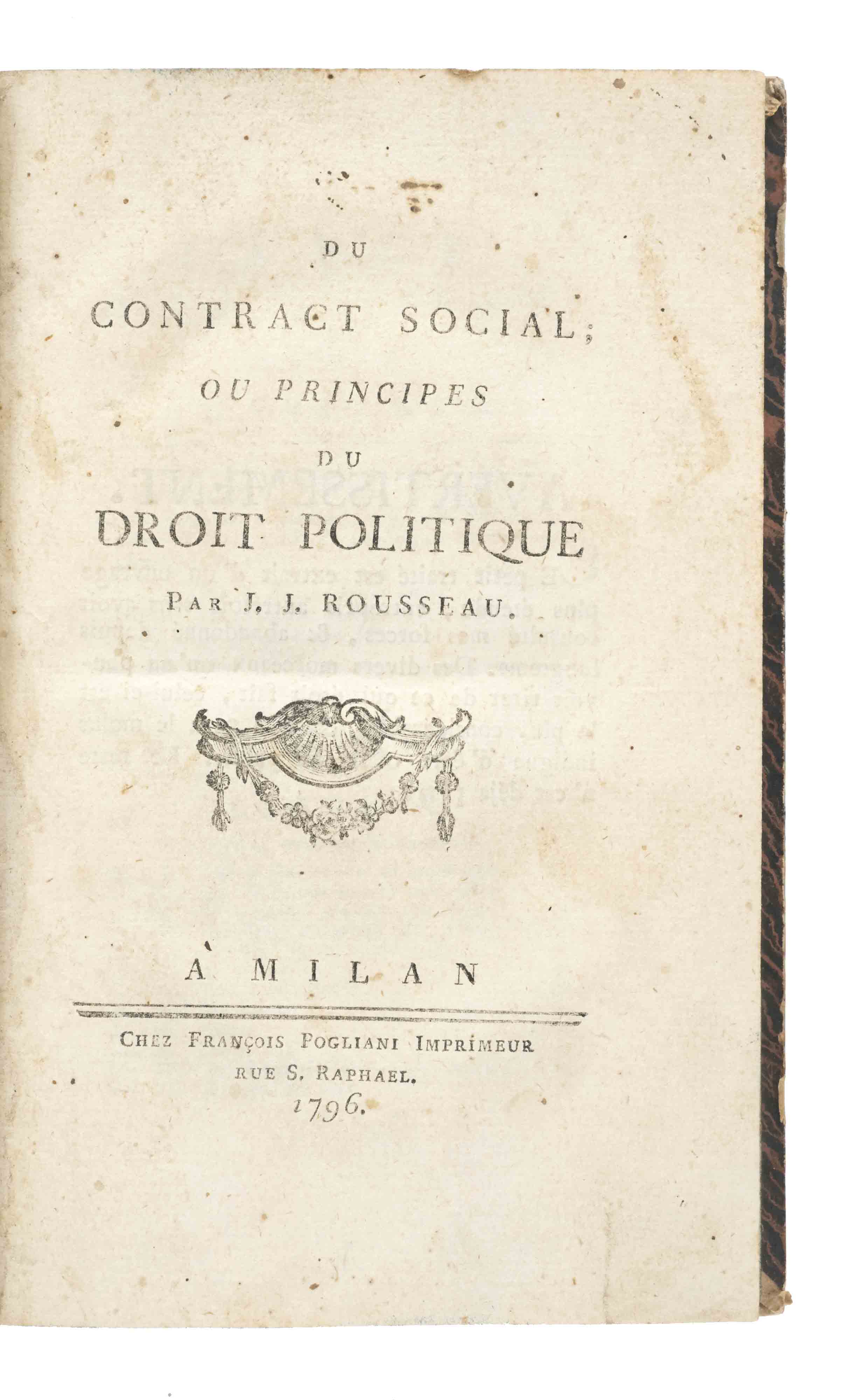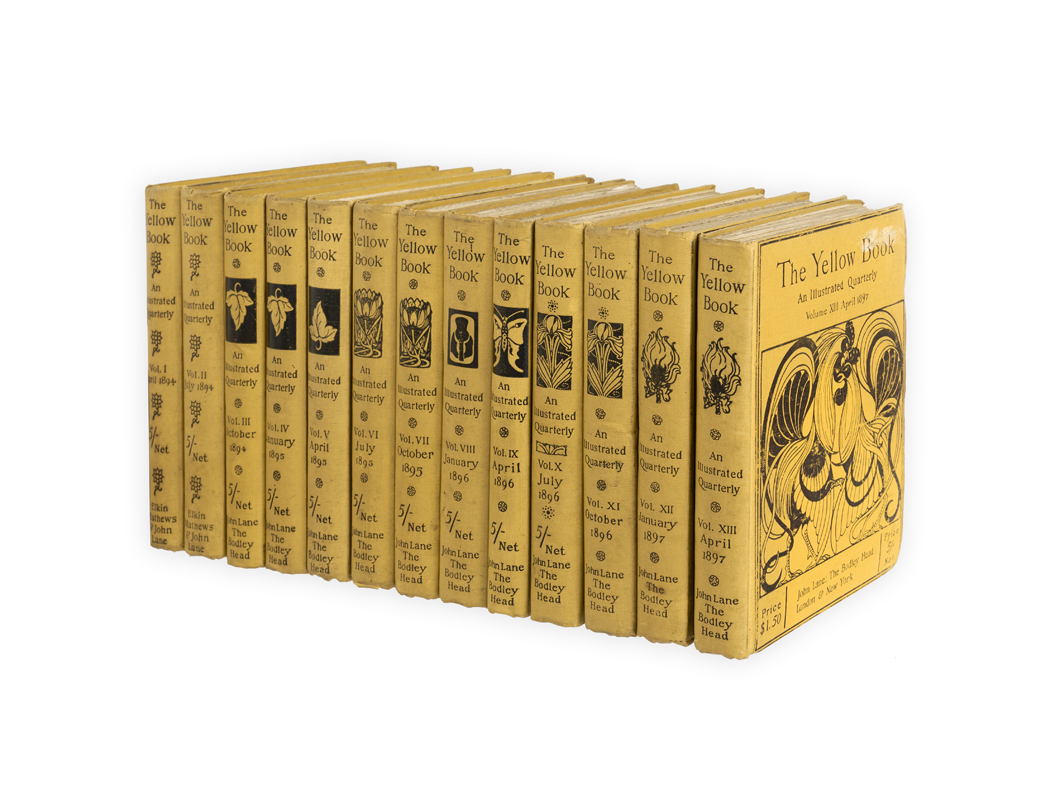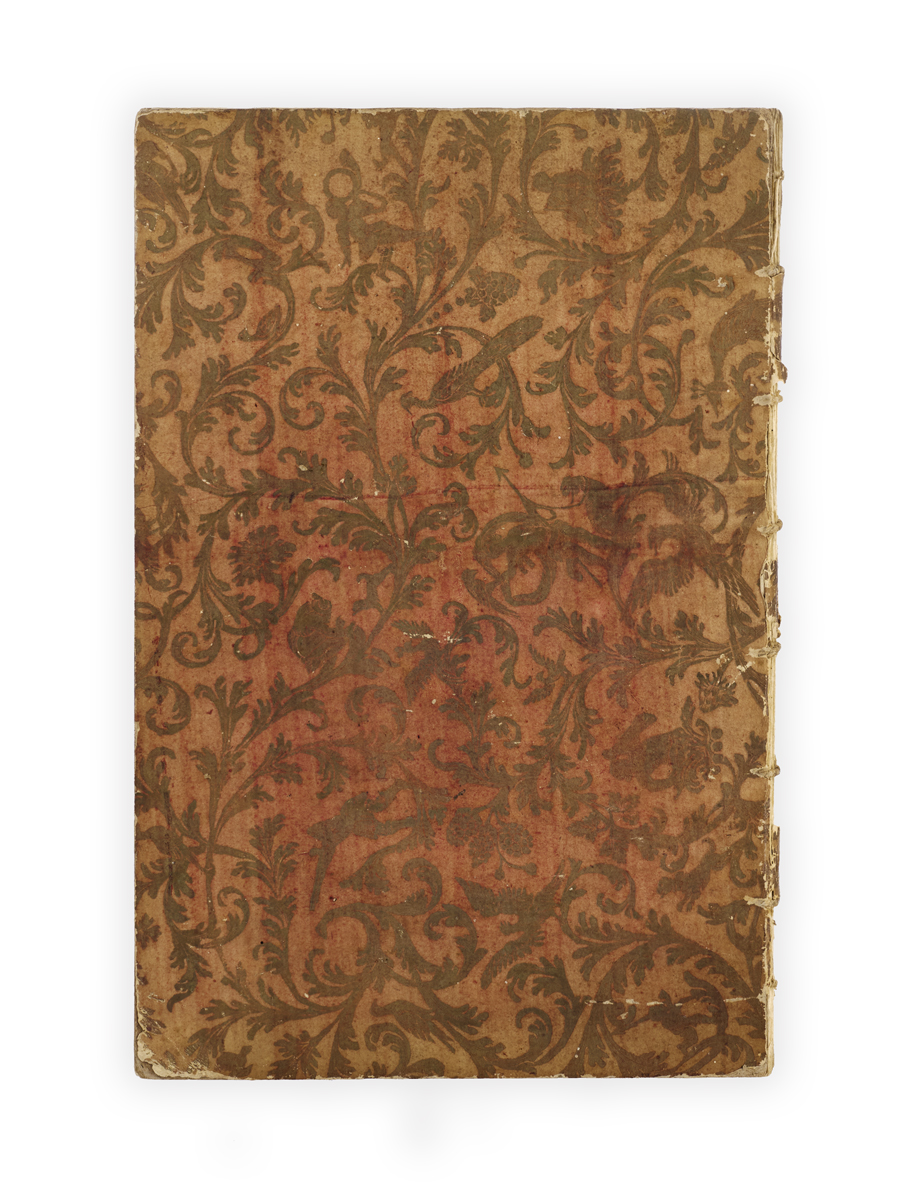
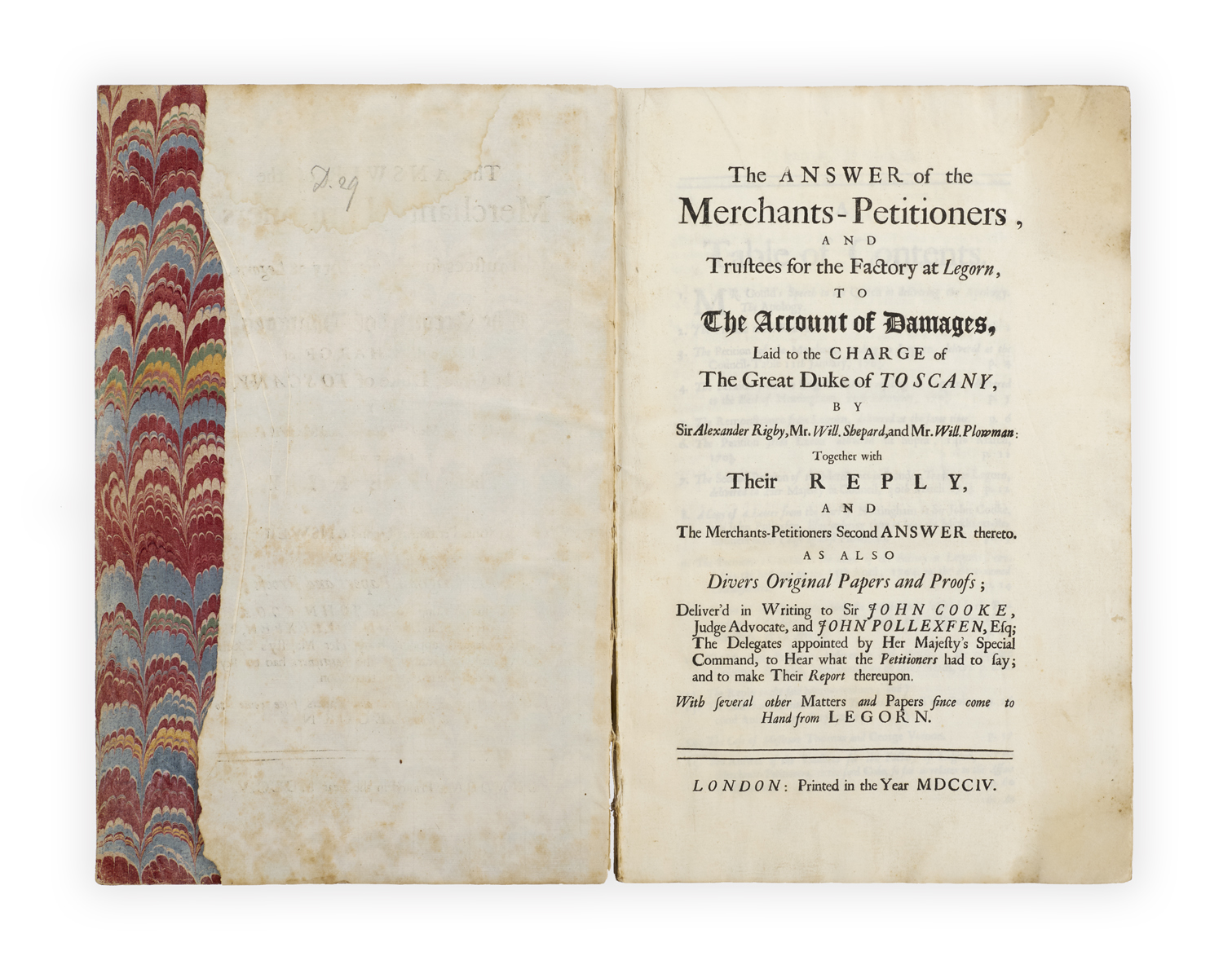
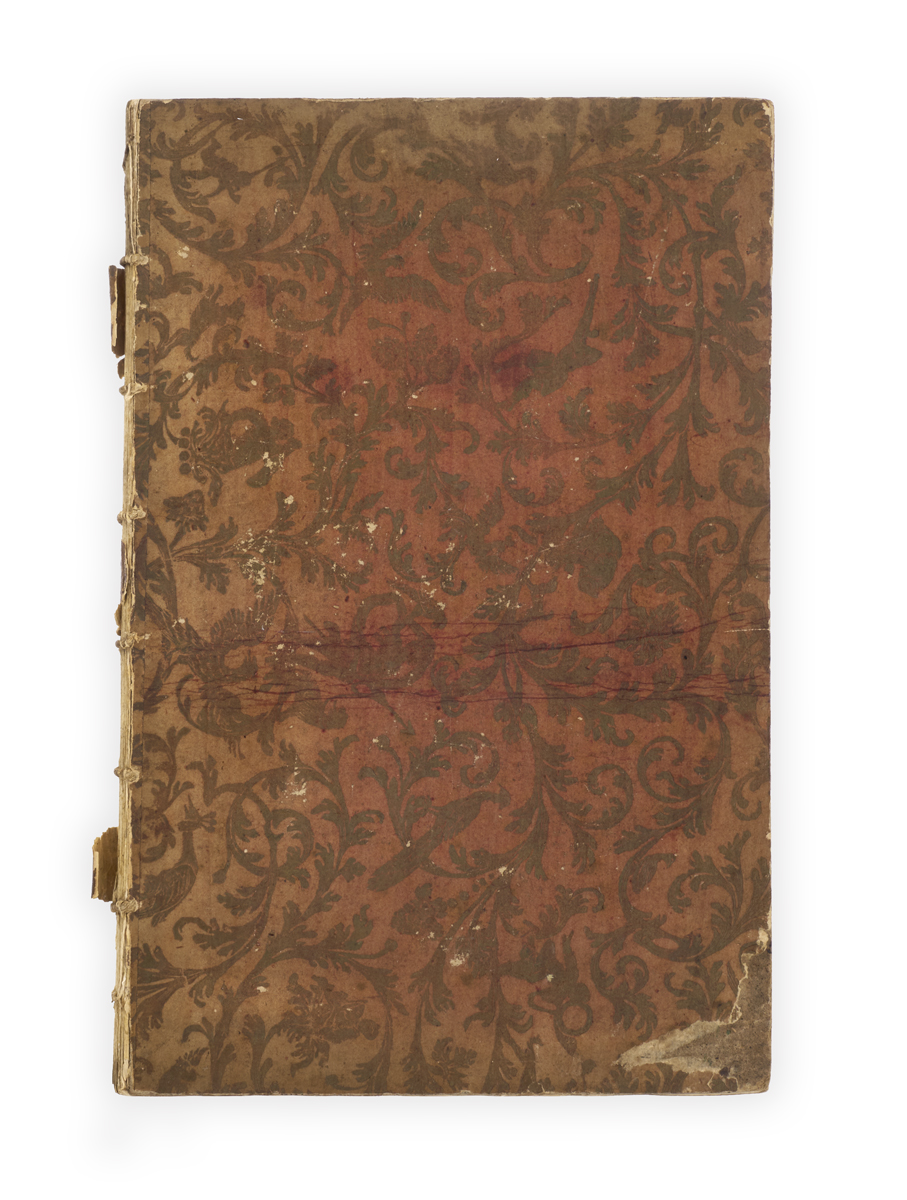
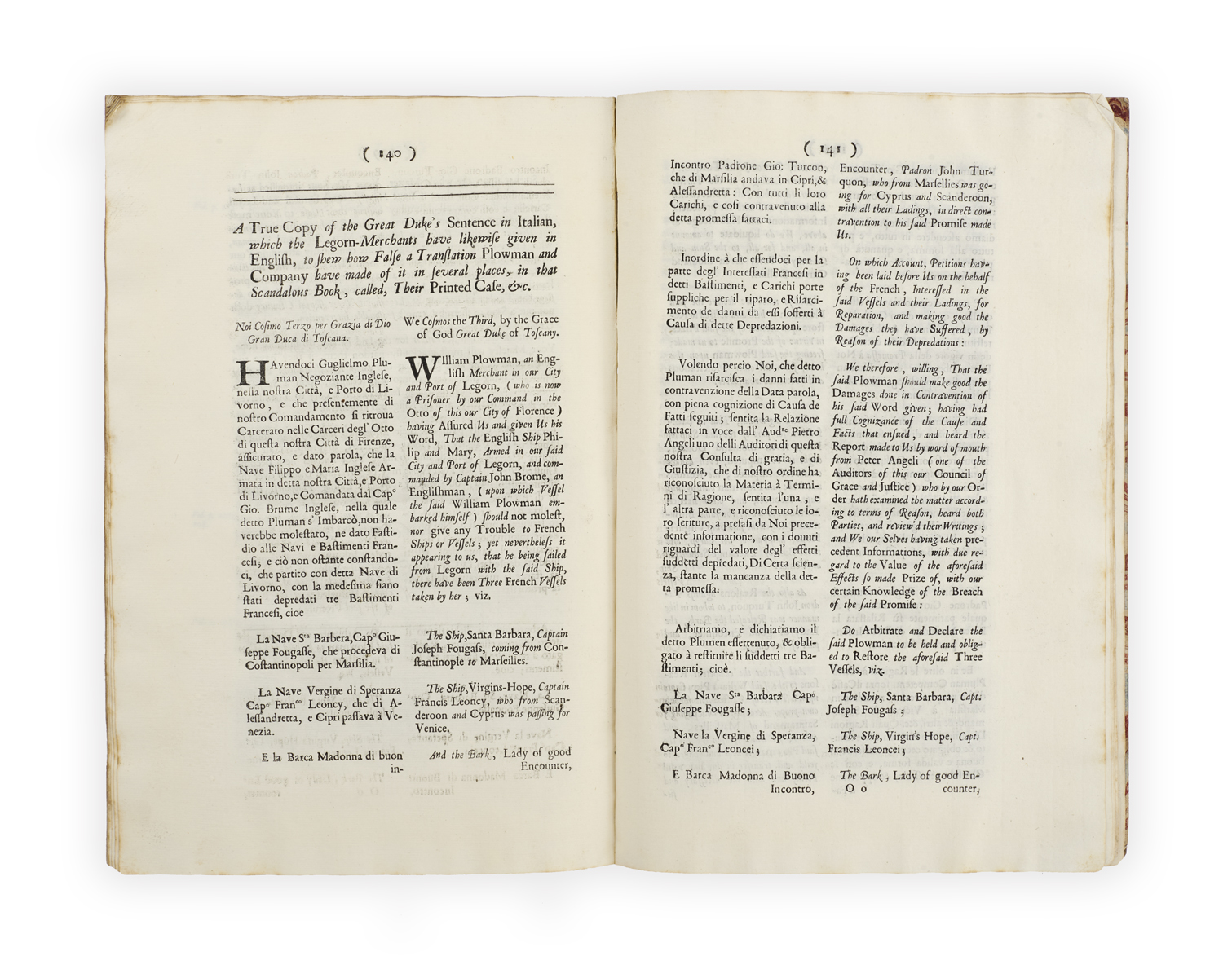
TRADERS OR PIRATES?
TESTING THE POLITICS OF NEUTRALITY
ANSWER OF THE MERCHANTS-PETITIONERS,
and Trustees for the Factory at Legorn, to the Account of Damages, laid to the Charge of the Great Duke of Toscany, by Sir Alexander Rigby, Mr. Will. Shepherd, and Mr. Will. Plowman: together with their Reply … With several other Matters and Papers since come to Hand from Legorn.
London: Printed in the Year 1704.
Folio, pp. [12], xv, [1], 159, [1]; titlepage slightly soiled at fore-edge else a fine copy in the original boards, contemporary German (Augsburg?) brocade paper covers with birds, dogs and hunters among foliage, spine mostly defective, pastedowns of marbled paper, edges gilt.

Added to your basket:
and Trustees for the Factory at Legorn, to the Account of Damages, laid to the Charge of the Great Duke of Toscany, by Sir Alexander Rigby, Mr. Will. Shepherd, and Mr. Will. Plowman: together with their Reply … With several other Matters and Papers since come to Hand from Legorn.
First and only edition, scarce, part of a fascinating trade (and piracy) dispute involving English merchants in Livorno (or Leghorn), which brought England and Tuscany to the brink of war in 1704.
In the seventeenth-century Livorno emerged as an archetypal free port, a safe and neutral entrepot controlled by the Medici Dukes of Tuscany. By the 1640s the English were the principal foreign mercantile population, and in the eighteenth-century perhaps half the city’s trade went through them. Sir Alexander Rigby (c. 1663–1717) had established a trading concern at Livorno as early as the 1680s. In 1690 he entered into a partnership with William Shepherd and William Plowman. ‘They exported woollens, fish and tin from England to Turkey, and … Rigby later claimed to have earned £20,000 in profits by 1695’ (History of Parliament online). Having separated from the partnership, Plowman captured several French vessels in the Levant, therefore threatening Tuscany’s neutrality in the Nine Years’ War. He was consequently imprisoned by the Grand Duke of Tuscany, Cosimo III de’ Medici, on the charge of piracy; confined for 3 years, he ‘was only released when he confessed to the charge … and after he had signed over to the French consul at Leghorn all the goods belonging to Rigby, Shephard and himself’. When Plowman had returned to England, the trio ‘vigorously pursued with the ministry their grievance against the Grand Duke, claiming compensation of £40,000’. In their efforts they published several accounts of their cause and sought the support of Queen Anne, Marlborough, Godolphin, and Harley, but the Duke continue to ignore any claims for reparation.
The Duke was not their only opponent: their campaign was opposed by merchants still trading in Livorno, afraid of how the dispute could affect their business. In this finely printed Answer the Merchant-Petitioners of Livono label Rigby and Plowman’s Case as ‘Scandalous Libel … compiled with Fabulous and Airy Pretensions’, and present some 39 petitions, letters, accounts, and pieces of contrary evidence. Front and centre is an ‘Apology to the Queen’, which was presented to Anne by Edward Gould in June 1704 and accuses Plowman not just of Catholicism and piracy, but also of bigamy (with a wife in England and another in Italy), contact and support for Mary of Modena, and complicity with the attempted assassination of William III. Later evidence compounds this with blackmail – a letter from Plowman is printed asking the consul John Burrows to assist him lest he bring to light Burrows’s involvement in two attempted murders.
The Rigby and Plowman cause is also challenged on economic and legal grounds. An account of the damages claimed is printed side-by-side with the merchants’ replies, which expose for example how they charge the Duke for the loss of a ship off the coast of Barbary. Legal opinions by John Cooke (Plowman’s piracy was legitimate during a time of war and not justification for the Duke’s actions) and John Pollexfen (Rigby’s business was legitimately affected at no fault of his own), are also answered showing accounting inconsistencies.
Scarce, with 10 copies in ESTC: British Library (Hans Sloane’s, mounted), Lambeth, Bodley (2), Senate House; Harvard (2, one imperfect), UCLA, Illinois, and Kansas.
Goldsmiths’ 4052; Hanson 390; Kress 2408.
